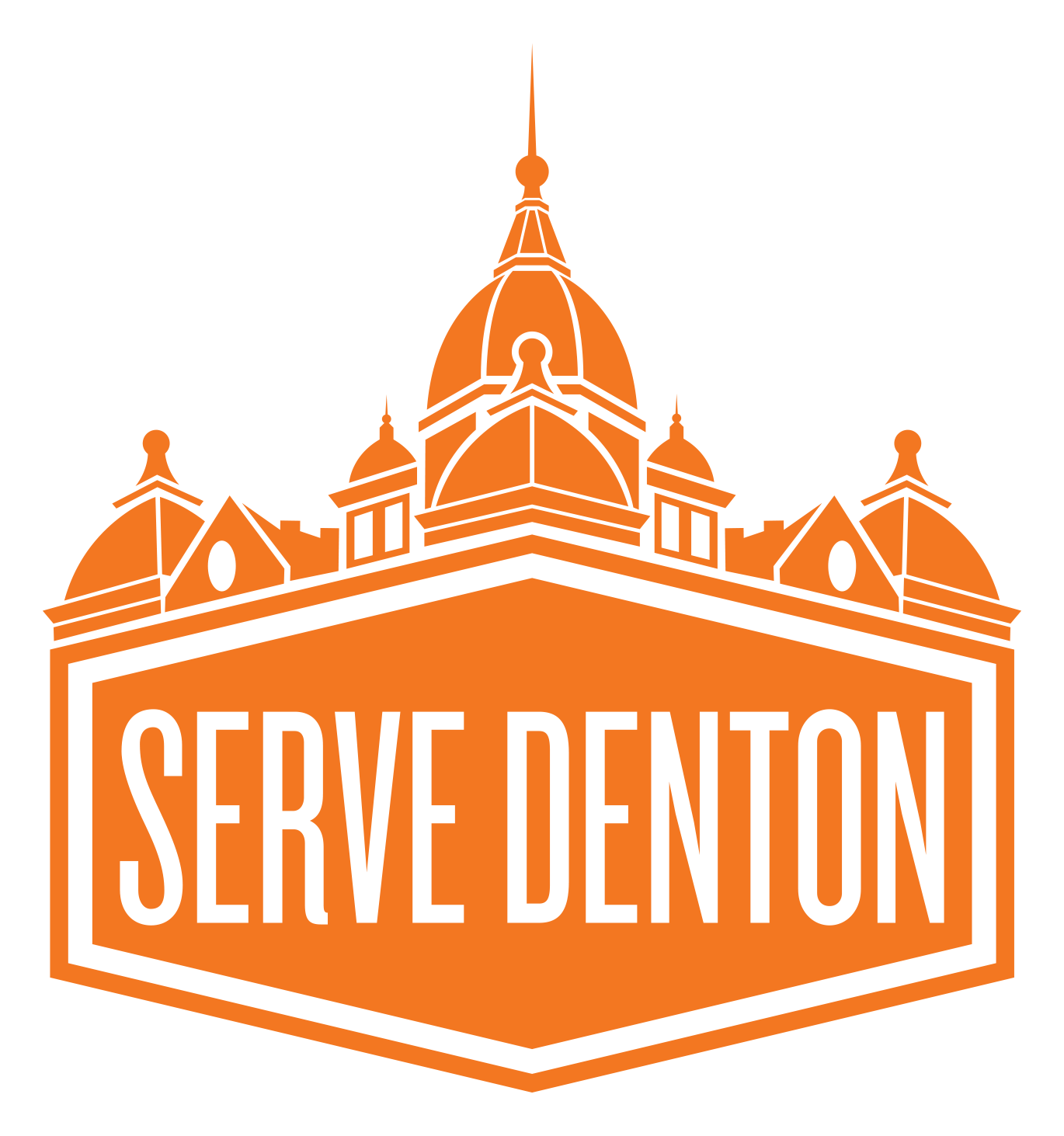
Our Team, Here to Serve
Pat Smith
Chief Executive Officer
Allison Quisenberry
Community Development Director
Dale Schmeltzle
Chief Financial Officer
Cathy Kerley
Chief Development Officer
Kristen Gramling
Chief Operating Officer
Kevin Moffitt
Accounting Director
Michelle Wagner
Executive Assistant
Sarah Ramos-Moffitt
Operations Associate
Francine Almodovar
Development Associate
Karla Ortega
Operations Coordinator
Paul Tanis
Property Director
Sara Morales
Operations Associate
Our Mission:
Serve Denton partners with nonprofits to help make their services more accessible for people in need.
Our Strategy: The Serve Denton Business System
Approved May 20, 2021
Our mission statement, “To partner with nonprofits to help make their services more accessible for people in need,” captures who we serve, what we do, and why we do it. The Serve Denton Business System explains how we fulfill our mission and provides the structure for our operations. It comprises four areas: philosophy, process, people, and problem-solving. Within those four areas, we have identified fourteen principles we believe about how we aspire to conduct ourselves.
Philosophy: Adopt a long-term system of thinking.
Principle 1: Our management decisions are based on a long-term philosophy. Work like a tortoise, not a hare.
Process: The right process will produce the right results.
Principle 2: We create a continuous process flow to bring problems to the surface. By redesigning work processes, we seek to eliminate waste (muda) through continuous improvement (kaizen).
Principle 3: We use "pull" systems to avoid overproduction. A "pull system" is a process that signals its predecessor that material or information is needed. The pull system produces only the required material after the subsequent operation signals a need. This process is necessary to reduce overproduction. Examples of overproduction are inspecting an item (e.g. an area of the building) more than is required or purchasing more of an item than needed because "it is a good deal."
Principle 4: We level out our workload (heijunka). Leveling helps minimize waste (muda), not overburden people or equipment (muri), and not create varying production levels (mura). Examples of leveling are planning recurring maintenance so several items are not due at once.
Principle 5: We build a culture of stopping to fix problems to get quality right the first time. Quality takes precedence (jidoka). Any employee has the authority to stop operations to fix a quality issue.
Principle 6: Standardized tasks and processes are the foundation for continuous improvement and employee empowerment. Implementation of standards allows for continuous improvement (kaizen) from the people affected by that system. It empowers the employee to aid in the growth and improvement of the company.
Principle 7: We use visual control, so problems are not hidden. This principle is the foundation for our 5S (sort, set, shine, standardize, sustain) Program, which uses these steps to make all workspaces efficient and productive.
Principle 8: Use only reliable, thoroughly tested technology that serves our people and processes. Technology is pulled by operations, not pushed to operations.
People: Respect, challenge and grow our people and partners toward a vision of excellence.
Principle 9: We grow leaders who thoroughly understand the work, live the philosophy, and teach it to others. Without constant attention, the principles will fade. The principles must be ingrained; it must be how one thinks. Employees must be educated and trained to become and remain a learning organization.
Principle 10: We develop exceptional people and teams who follow Serve Denton's philosophy. Success is based on the team, not the individual. However, we invest heavily in our team members so they are prepared to contribute to the team.
Principle 11: We respect our extended network of partners and business partners by challenging them and helping them improve. We treat our vendors like we treat our employees, challenging them to do better, and helping them to achieve it, and thanking them for their contribution.
Problem Solving: Think and act scientifically to improve toward the desired future.
Principle 12: Go and see for yourself to thoroughly understand the situation (genchi genbutsu). The staff is expected to "go and see" operations. Without experiencing the situation firsthand, they will not understand how it can be improved.
Principle 13: We make decisions slowly by consensus, thoroughly considering all options, and implement decisions rapidly (nemawashi). The following is our decision-making process: Find what is really going on (go-and-see); determine the root cause; consider a broad range of alternatives; build consensus on the resolution; communicate the plan effectively across the team; execute the plan; adjust as we go; and assess how we did after completion.
Principle 14: We seek to become a learning organization through relentless reflection (hansei) and continuous improvement (kaizen). This process involves being curious and humble. Every aspect of our work is open to discussion and feedback.
Join the Conversation
We're excited to share how Serve Denton makes a difference in our community by supporting local nonprofits. Stay connected with us to learn how we help families and individuals in need access essential services, from healthcare to food to counseling. Plus, receive inspiring stories of hope and community impact. You won't find these resources and updates anywhere else!













